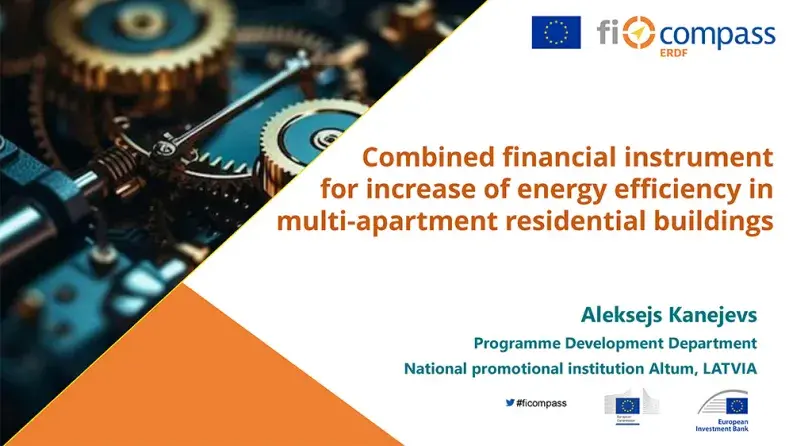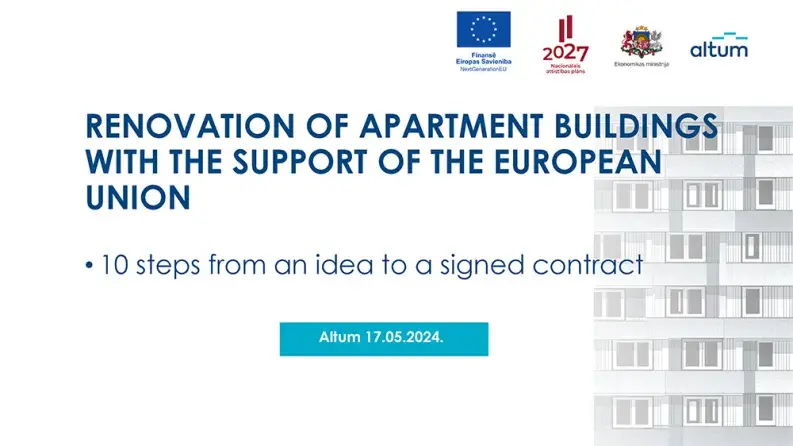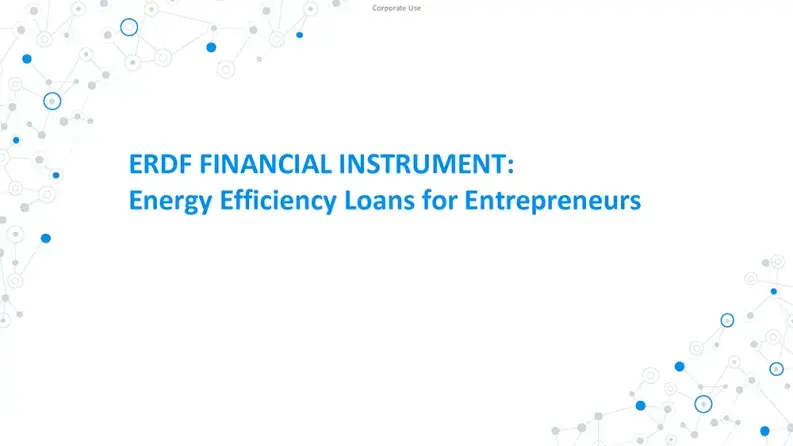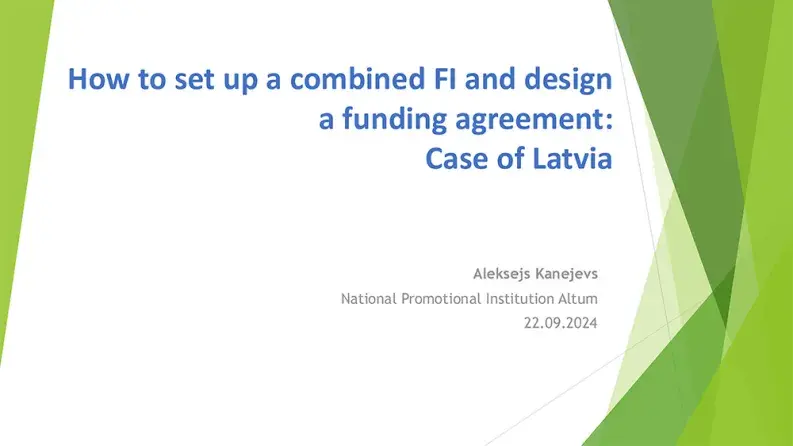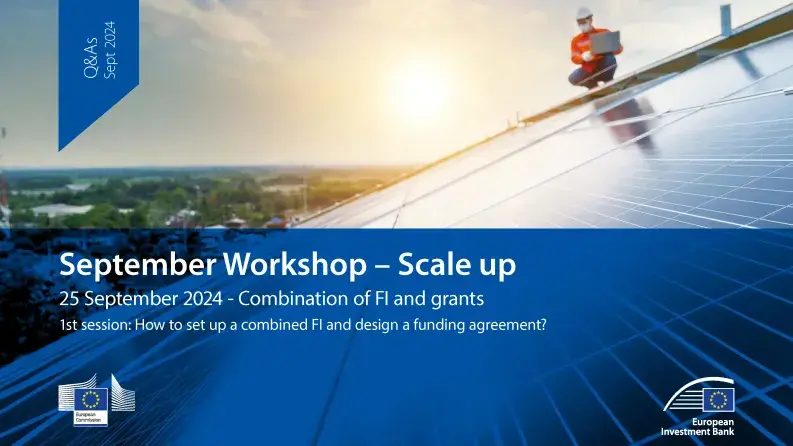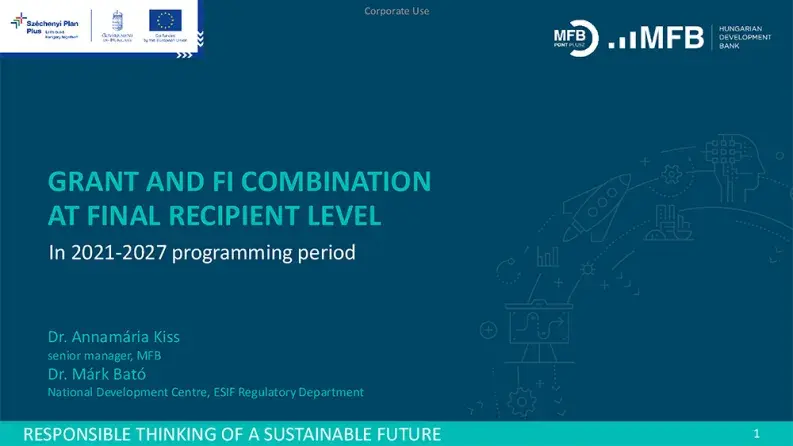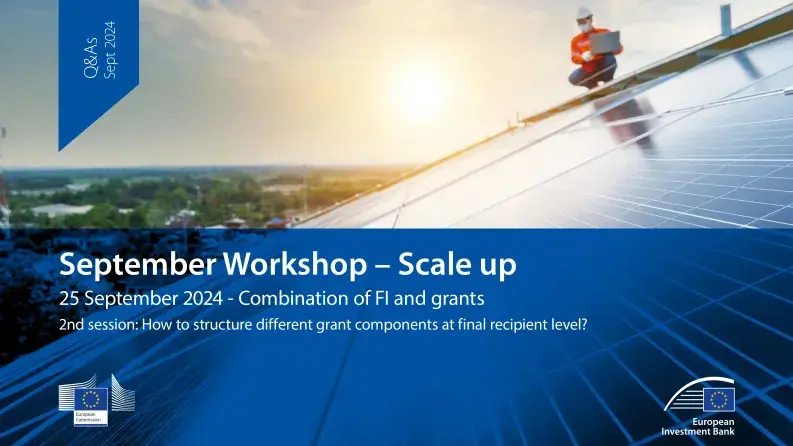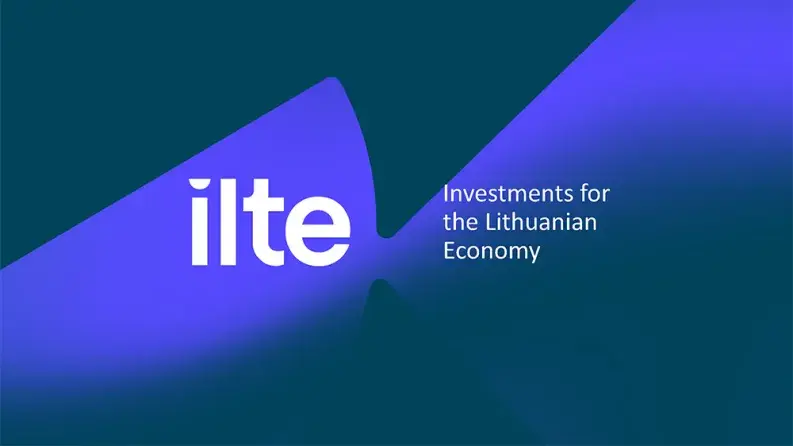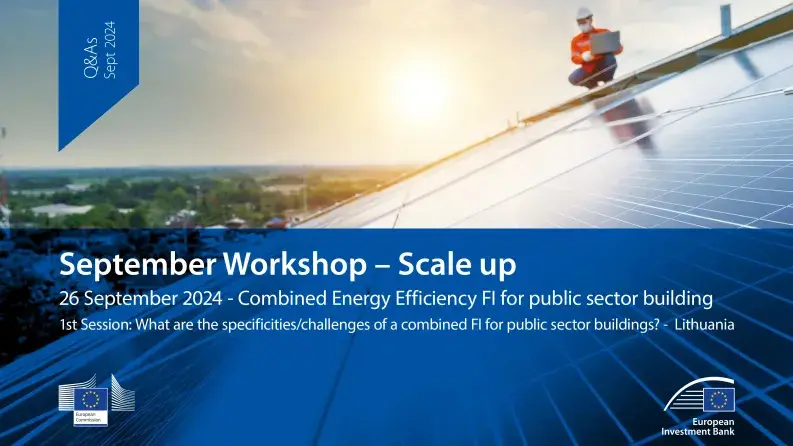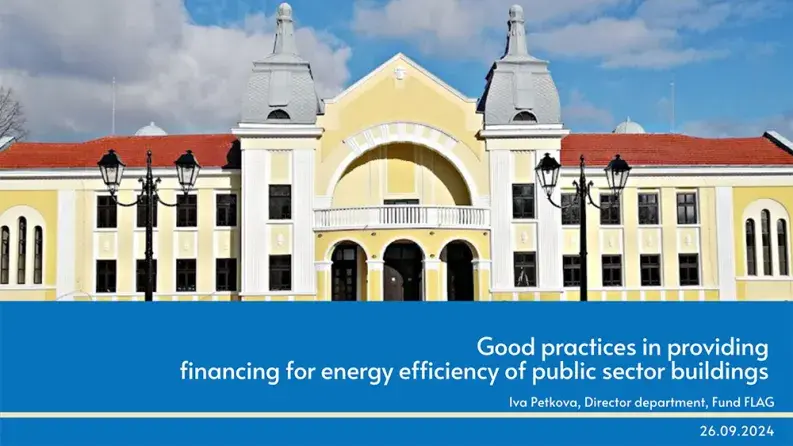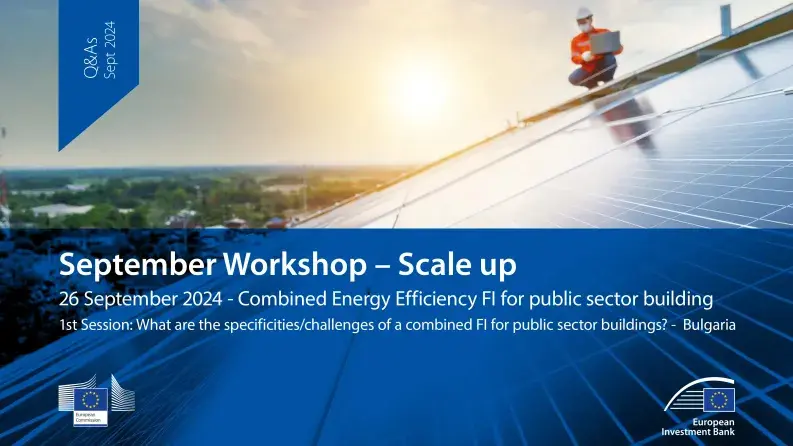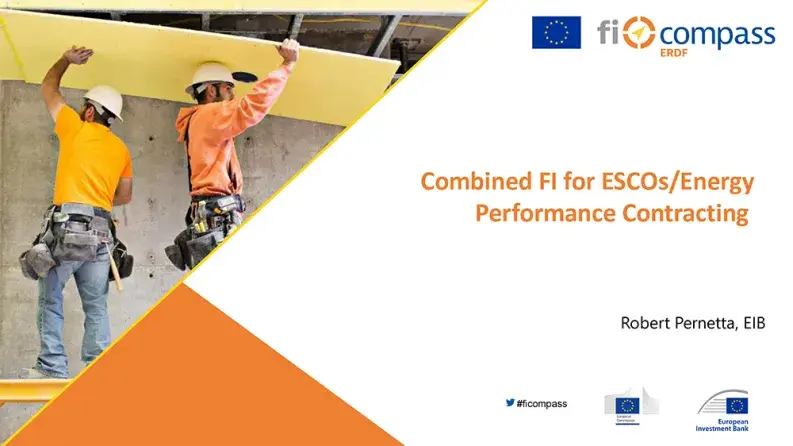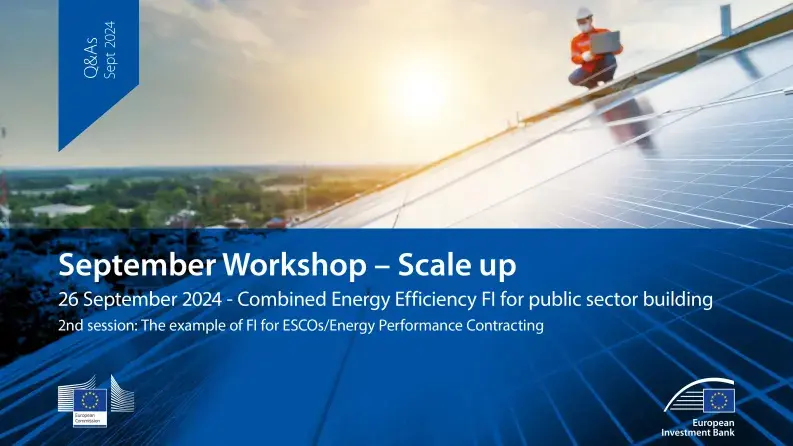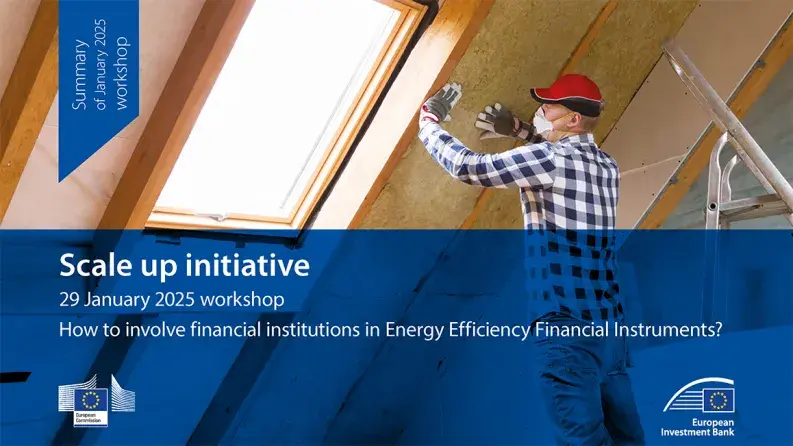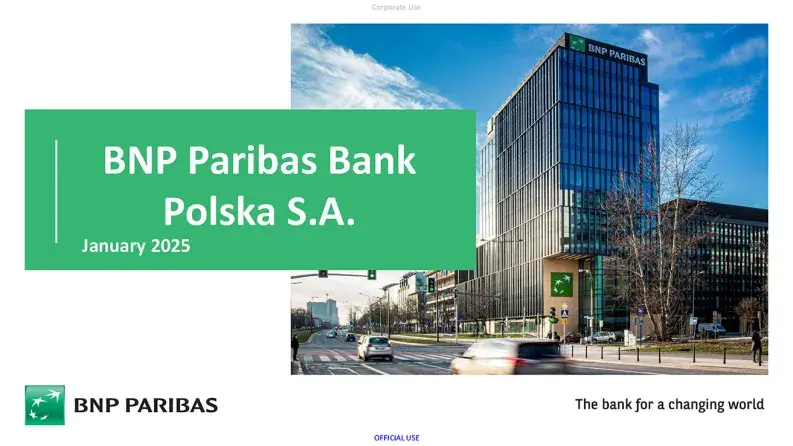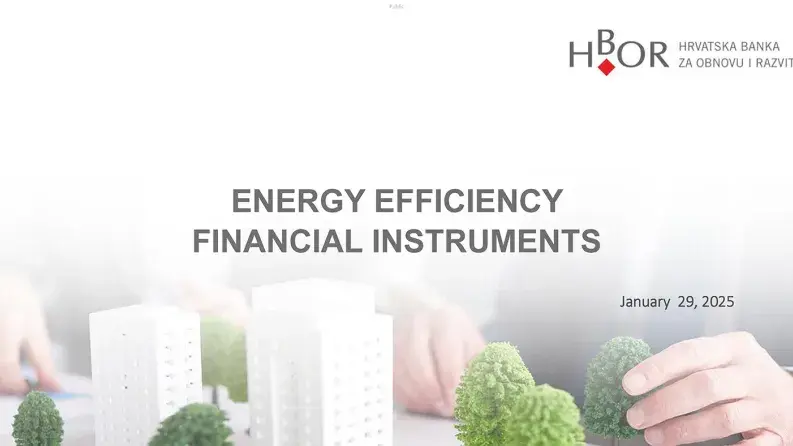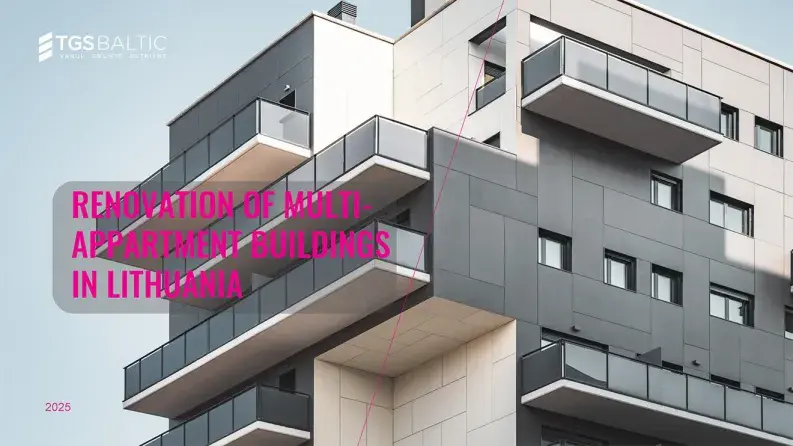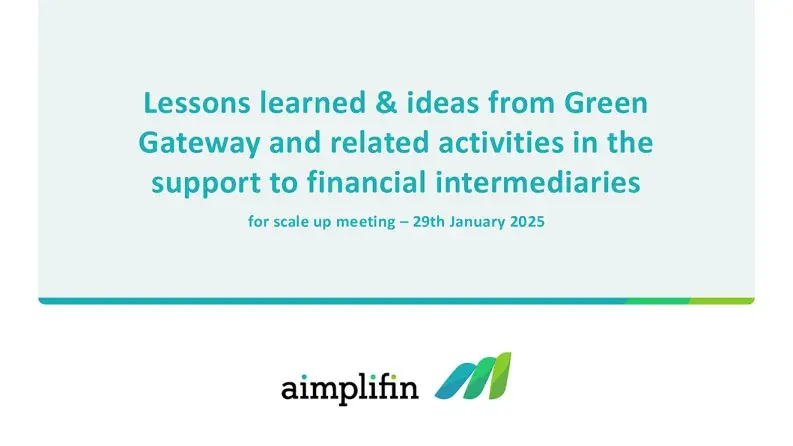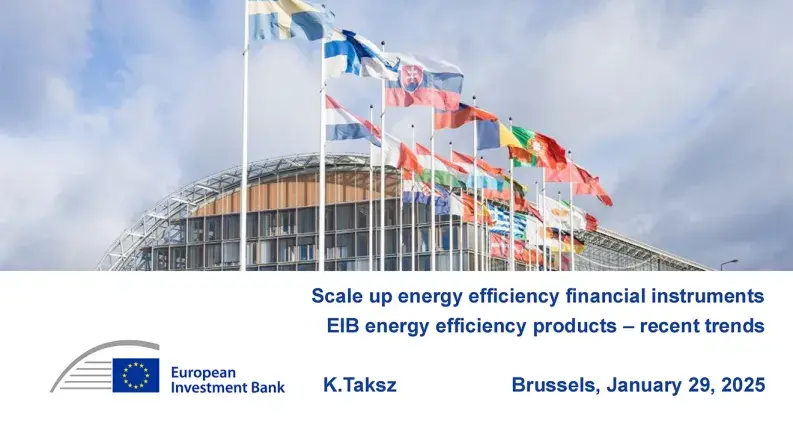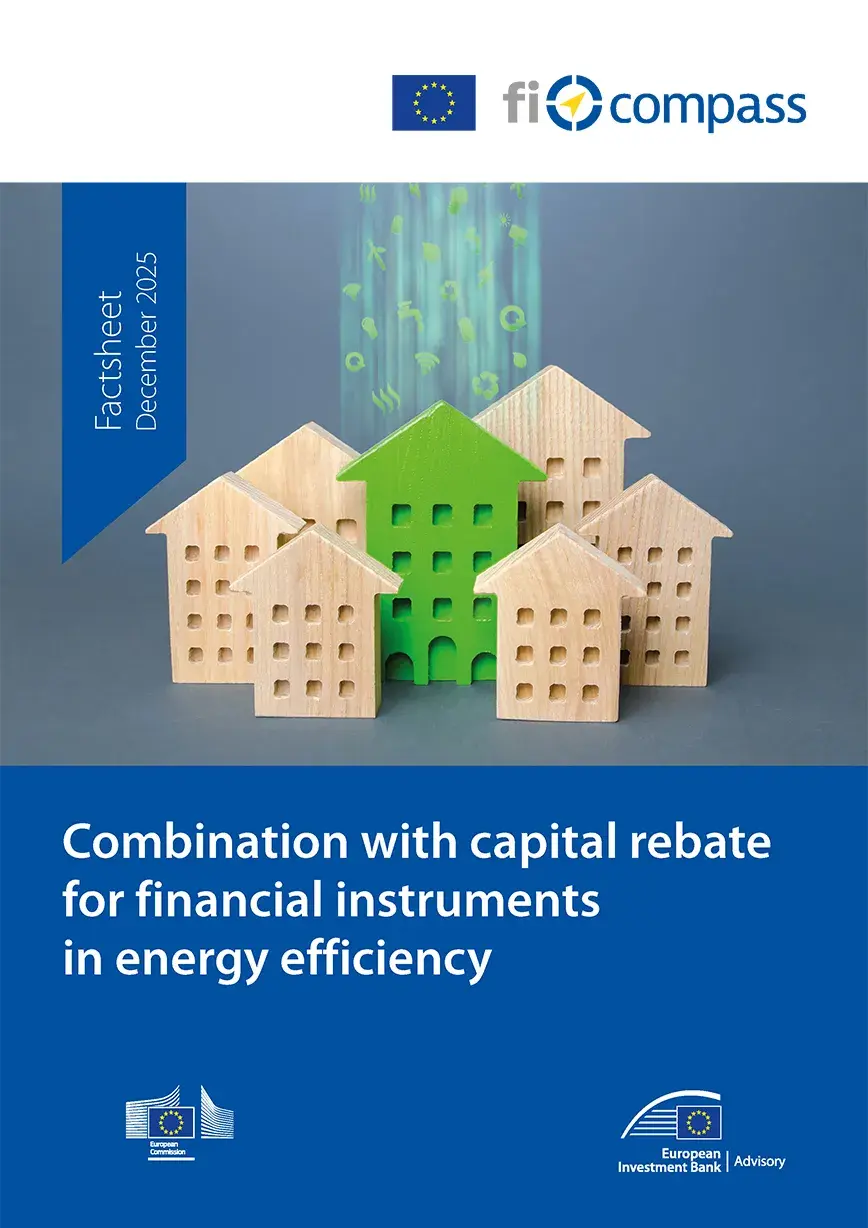Scale-Up: energy efficiency financial instruments
To meet EU climate action targets, we need to increase the pace and scale of green investments, particularly in the field of energy efficiency. DG REGIO and EIB Advisory have designed a new support programme for shared management financial instruments under the fi-compass framework, called Scale-Up.
This new initiative addresses key challenges related to the design, set up and implementation of financial instruments for energy efficiency (EE) and small-scale renewable energy (RE) investments in the 2021-2027 programming period. Read through this page to find out more about the initiative.

How does it work?
Scale-Up builds on a new collaborative approach under the fi-compass framework, bringing together selected experts from managing authorities, national promotional banks and institutions (NPBIs), financial intermediaries, the European Commission, and the EIB Group. These experts contribute on a voluntary basis to a working plan over a period of 18 months, identifying solutions to financial instrument implementation barriers. They also provide recommendations regarding the evolution of the regulatory framework applicable to financial instruments in the current and next programming periods.
Task-based working groups of experts are created to reflect on new operational solutions that facilitated the implementation of financial instruments, based on best practices and experiences from various EU countries. The working group members are selected based on their skills and experiences, and after consideration of their institutions’ ambitions for energy efficiency financial instruments within the current programming period.
The Scale-Up initiative formally started its activities in April 2024. The results of its work are disseminated to the fi-compass community on a regular basis through this page.
What’s in it for participants?
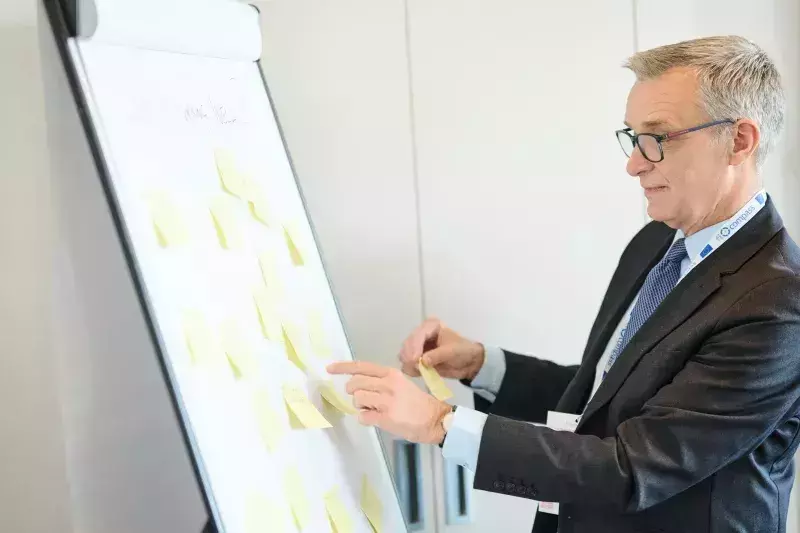
Participants actively contribute to the activities of the Scale-Up working groups, sharing data and expertise as needed. They also promote working group findings within their organisations and geographical areas. Working group members have the opportunity to discuss and develop solutions to their own operational challenges, increase their knowledge, and network with experts from across the EU.
Under the Scale-Up initiative, managing authorities and NPBIs also benefit from dedicated support from the EIB to address specific issues related to the implementation of financial instruments in their Member States, aiming to leverage private and public funding and maximise impact.
What topics do the working groups cover?
The Scale-Up initiative tackles a wide range of topics, such as:
- Cross-cutting barriers to financial instrument implementation, notably in combination with grants;
- State aid regime and notification process;
- Alignment with eligibility criteria and assessment for green investments;
- Energy efficiency financing in residential housing and the public sector (legal framework, credit risk analysis, operational challenges);
- Awareness raising and marketing of financial instruments;
- Incentives to use financial instruments.
Additional topics were identified by the working groups during the implementation of the initiative.
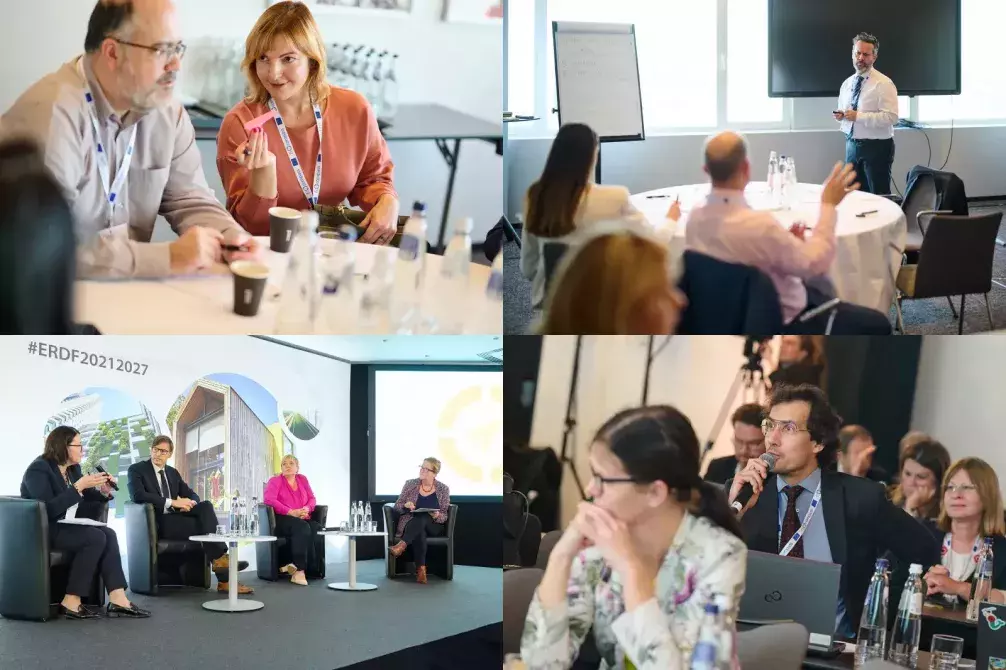
2024 activities
In 2024, the Scale-Up expert group began its activities and met several times to discuss challenges and operational solutions to improve energy efficiency financial instruments. The kick-off meeting of the initiative took place on line in April 2024. On this occasion the objectives of the initiative and the work plan were discussed and agreed.
Two main workshops took place in 2024, the details of which are provided thereafter.
Workshop #1 – 27 May 2024
The aim of this first workshop was to address the initial steps of the design and set up of combined financial instruments for energy efficiency. Participants notably discussed the content of the programme and ex-ante assessments and how to analyse and justify the use of grants to be combined with FI in one operation. During this workshop, the methodology used by lenders to assess the credit risk of housing associations was also discussed.
Workshop #2 – 25-26 September 2024
The second workshop of the year, was organised over two days in Brussels in DG REGIO premises. It aimed to cover a variety of topics related to combined financial instruments for energy efficiency from the structure of the instruments, the content of the funding agreement, State aid regimes as well as the specificities of EE FI for public buildings, including the use of EPCs and ESCOs.
2025 activities
On 29 January 2025, the 3rd workshop organised under the Scale-up initiative took place in EC DG REGIO premises in Brussels. The aim of the workshop was to discuss the conditions and opportunities to involve financial institutions in energy efficiency (‘EE’) combined financial instruments.
Workshop #3 – 29 January 2025
The workshop gathered representatives from managing authorities (‘MA’), public and private financial institutions as well as experts from legal and consulting firms.
Factsheets & Tools
Combination with capital rebate for financial instruments in energy efficiency
This factsheet outlines how financial instruments can be combined with capital rebates to boost energy efficiency investments in residential and public buildings. Developed within the fi-compass Scale-Up initiative, it addresses key regulatory, operational and market challenges faced by managing authorities and financial intermediaries when blending loans, guarantees and performance-based grants to accelerate renovation activities across the EU.
It provides concise, practical guidance on designing and implementing capital rebates as results-driven incentives, where part of a loan is converted into non-repayable support once agreed energy performance targets are achieved. Aimed at policymakers and practitioners, the factsheet supports the effective use of EU funds under the 2021–2027 framework by improving project bankability, mobilising private investment and delivering measurable energy and climate outcomes.



